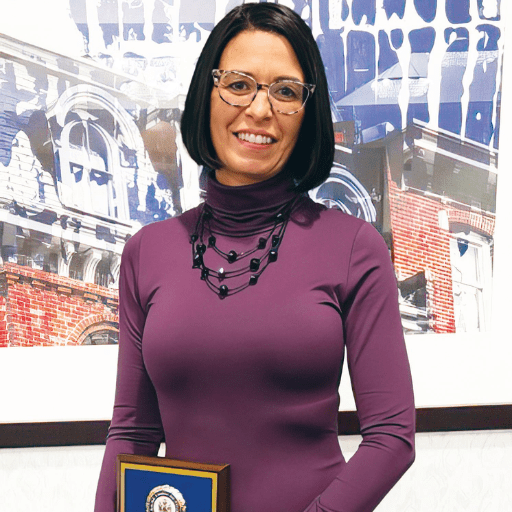Helping Others One Lifeline at a Time
Lacey Bailey, the OPTIONS Liaison at Sweetser for York County, is a Maine native who enjoys giving people a lifeline when they most need it. “Through my position with OPTIONS I am able to connect people with the services they need,” she said. “Many people check in with me on a regular basis as another person they can reach out to and be connected with.”
Lacey is in long-term recovery and can share her own life experience with those she helps. The vast majority of people Lacey works with are struggling with active substance use and are very isolated for a variety of reasons. “When someone hasn’t had connections for a long time, it can be the first hope they get,” she said. Lacey provides people with the tools they need wherever they are in their substance use journey.
“Whether it’s peer support, professional support, or group support — the connection, compassion, and relationship piece is pivotal to the rest of the work,” said Lacey.
Lacey has an office at the Sanford Police Department and works closely with the officers as part of their mental health unit. The department provides her with a number and a radio. “They give me every tool they have to keep connected and stay safe,” she said. “I can’t say enough good about the Sanford Police Department. They have been essential in allowing me to do my work with OPTIONS.”
Lacey follows up after each call with the person or affected others she meets through the police department. Sometimes people are simply looking for a resource, and other times they are looking for long-term help. Lacey works with individuals on their immediate needs at the scene of the event and often assists them with basic living needs such as housing, food and clothing. She also aligns people with immediate medical treatment they may need and later primary care, substance use treatment, and harm reduction measures, like naloxone.
“Sometimes they won’t have shoes on or jackets, so we connect them with clothing through a local clothing closet. Others may need a ride to detox or someone to sit with them in the hospital and advocate for them while they are there,” said Lacey. “Whatever the need is in the moment to make the person feel safer is the approach I take. I meet people where they are and this helps build trust. Having a trusted relationship is the best tool. I don’t judge, I offer kindness and compassion and let the person be self-directed by giving them guidance. The people we help really appreciate that.”
Even though Lacey’s workspace is within the Sanford PD, she also works with other police departments in York County. “I will soon be going to Wells two days a month to show them how officers work with someone in a clinical role. It’s nice to have a home base, but I really do like when we can reach across town lines. Everyone reaching out brings communities together. If we are going to succeed in this work, we need to be on the same page and all work together.”
“Stigma is still a huge challenge for the individual and community.” Lacey believes it is still difficult for people who use substances to think they will get the help they need. “I think stigma is lessened by being at the scene and being able to advocate for the person during follow-up. There is a growing trust within the community and with the police departments who are trying to help those who struggle with SUD. People are in “awe” and offer valuable feedback about how calm and supportive the police and other first responders are with individuals in crisis. It helps restore trust with individuals and people in the community.”
Don’t push it aside, even if you aren’t ready for full treatment, keep talking about it and keep connecting with those around you. The less secretive we can be about substance use, the better off we will be.”
Good words to live by.
This article was made possible with the support of the OPTIONS program and the Maine Office of Behavioral Health.



